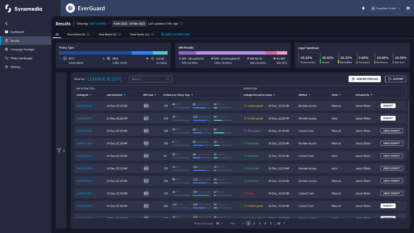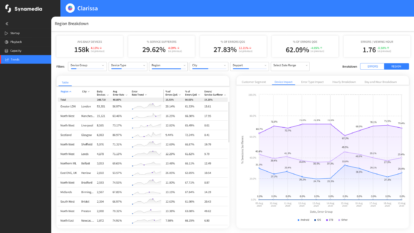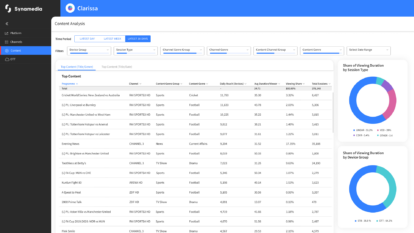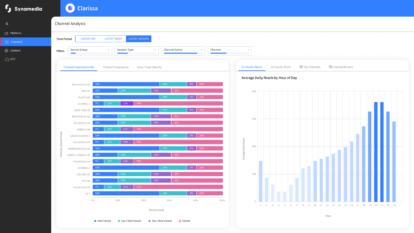Imagine planning a road trip. For a family of four, you would need a car or SUV that anyone can drive and offers enough space and comfort for everyone. The vehicle should have various features to ensure comfort and get them from point A to point B without excessive cost or complexity.
Now, consider organizing a cross-country tour for a group. With so many more people and varying requirements, you would need something larger, like a tour bus, which requires a specialized driver. This vehicle would need to address the diverse needs of dozens of people, provide ample amenities, and ensure a smooth journey for everyone on board.
Not unlike the road trip example, small business’ need can no longer succeed with just a car or SUV for their broadband needs, they need a tour bus complete with a driver.
This blog delves into the specific broadband services essential for small businesses and explains why investing in the right solutions is crucial for their success. From engaging through web splash pages/captive portals to ensuring business continuity, network security, and embracing IoT advancements, we’ll explore how these services support small businesses in staying competitive and thriving in an increasingly connected world.
Essential Broadband Services for Small Businesses
1. Web Splash Page/Captive Portal
- Engagement and Branding: A web splash page or captive portal allows small businesses to engage with customers as soon as they connect to the network. This can be a powerful tool for branding, promotions, and collecting customer data.
- Security and Compliance: These portals can also ensure compliance with data privacy regulations by obtaining necessary consents and providing terms of service agreements.
2. Managed Wi-Fi
- Network Segregation: Wi-Fi network segregation enhances business security and compliance by isolating sensitive data, while optimizing performance and management through reduced congestion and prioritized access, thus improving efficiency and user experience.
- Consistent Connectivity: Reliable connectivity is fundamental to maintaining a business’s ability to do business when outages occur. Without it, businesses risk losing revenue, operational disruptions, and loss of productivity.
3. Business Continuity
- Reliable Connection: In the event of a broadband outage, having a backup connection is critical. Business continuity solutions can seamlessly switch to an alternate connection, minimizing downtime and ensuring that operations continue smoothly.
- Disaster Recovery: Quick recovery from internet disruptions is vital for maintaining productivity and customer satisfaction.
4. Network Security
- Protecting Data: Small businesses handle sensitive data, making robust network security essential. This includes firewalls, intrusion detection systems, and regular security updates to protect against cyber threats.
- Compliance: Many industries have specific regulatory requirements for data security. A secure network helps small businesses stay compliant with these regulations.
5. Business Voice Services
- Professional Communication: Voice over IP (VoIP) services offer small businesses professional-grade communication tools at a fraction of the cost of traditional phone systems.
- Integration: These services can integrate with other business applications, providing features like voicemail-to-email, call forwarding, and video conferencing.
6. IoT-Related Services
- Future-Proofing: The Internet of Things (IoT) is becoming increasingly important for small businesses. From smart thermostats to inventory management systems, IoT devices require a robust and secure network to function effectively.
- Automation and Efficiency: IoT devices can streamline operations, improve efficiency, and provide valuable data insights, helping small businesses stay competitive.
The Need for Managed Network Services
Many small businesses lack the in-house expertise to manage their complex network needs. This is where managed network services come into play. By outsourcing network management to experts, small businesses can focus on what they do best: running their business. Managed services can include:
- Network Monitoring and Maintenance: Continuous monitoring ensures that potential issues are identified and resolved before they can impact the business.
- Technical Support: Access to expert technical support can resolve problems quickly, reducing downtime and frustration.
- Custom Solutions: Managed service providers can offer tailored solutions that fit the specific needs of each small business, ensuring they get the most out of their broadband service.
Conclusion
Small businesses have distinct broadband needs that fall between residential and enterprise-grade services. By investing in a broadband solution that includes essential features like web splash pages, business continuity, network security, business voice, and IoT-related services, small businesses can enhance their operations and stay competitive. Additionally, leveraging managed network services allows these businesses to focus on their core activities while ensuring their network is secure, reliable, and future-proof. As technology continues to evolve, the right broadband solution will be crucial for the success of small businesses.
Get in touch with us to discover how Gravity can help you deliver a world class business broadband service!
About the Author
JT Taylor is responsible for developing and driving all product marketing, sales enablement, and thought leadership initiatives for two areas of the Synamedia portfolio: Synamedia Go, an open, modular, and flexible streaming video platform; and Gravity, a device management platform that can simplify the management of subscriber’s whole home network. When he’s not wearing his marketing hat, JT is an avid golfer and pseudo musician.












